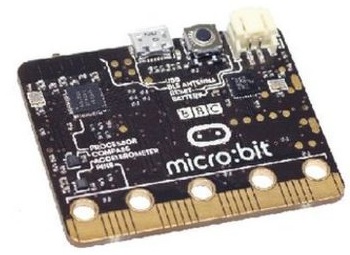The BBC is to give away one million new Micro:bit computers to 11- and 12-year-old children across the UK.
The BBC micro-bit has been produced in collaboration with a string of partners including Barclays, Samsung and Microsoft.
The pocket-sized, codeable computer was unveiled at an event in London on Tuesday, along with plans for its rollout this October, after the Micro:bit project was launched earlier this year as part of the corporation’s Make It Digital initiative.
It marks the BBC’s most ambitious education initiative for 30 years, following the 1980s BBC Micro initiative that introduced many children to computing for the first time.
The BBC is working with 28 software and hardware partners on the project, which will see every year seven pupil in the country given one of the computers, and a not-for-profit body set up to sell them after that point.
“Creating the Micro:bit has been a brilliant collaborative adventure for all of us,” said BBC director-general Tony Hall. “We’re talking about up to 1m Micro:bits going to 11- and 12-year-olds across the country.”
The BBC hopes the computer will change “the way children think about their ability to make things happen digitally”, according to Hall, who said the Micro:bit fits neatly with the BBC’s Reithian mission to inform, educate and entertain.
Each element of the BBC micro:bit is programmable via software on a dedicated website that can be accessed from a PC, tablet or mobile.
The computer also connects to other devices, sensors, kits and objects, and works as a companion to Arduino, Galileo, Kano, littleBits and Raspberry Pi.
The BBC’s head of learning, Sinead Rocks, said that the project started in 2012 as a “very tentative idea that very quickly gave us a feeling of ‘what if?’”. She added: “There was a real opportunity, if not a real need, to inspire young people to get creative with digital technology.”
Rocks said the BBC had faced “a real moment of decision” when choosing between year seven and year five pupils to receive the device.
“The reason we plumped for year seven is it had more impact with that age group … they were more interested in using it outside the classroom,” she said. “But it was a really hard decision.”
Rocks said the BBC was not working with the government to incorporate the Micro:bit into the national curriculum, but instead was creating resources for teachers, parents and pupils to access from its own website.
The BBC is launching an online simulator ahead of teachers being given the computers in September, and the rollout to pupils in October.
“We’re also exploring ways to ensure that children who are home-schooled also get their hands on one,” said Rocks, who added that once the 1m Micro:bits have been distributed to year-seven pupils, the BBC will make them available for other children, too.
“We’re planning to develop a not-for-profit company that will oversee and drive the Micro:bit legacy … we will be licensing them so that they can be made commercially available both in the UK and abroad,” said Rocks.
Derrick McCourt, general manager, public sector for Microsoft UK, said: “We don’t really know what kids are going to do with it … the exciting thing for us is that out of year seven, the next Bill Gates could come.”
Tony Hall, director-general of the BBC, said: “Channelling the spirit of the Micro for the digital age, the BBC micro:bit will inspire a new generation in a defining moment for digital creativity here in the UK. All you need is your curiosity, creativity and imagination – we’ll provide the tools. This has the power to be transformative for the UK. The BBC is one of the few organisations in the world that could convene something on this scale, with such an unprecedented partnership at its core.”
A total 29 partners were involved in the collaboration with the BBC, including ARM, element14, Freescale, Lancaster University, Nordic Semiconductor, ScienceScope, Technology Will Save Us and the Wellcome Trust.

